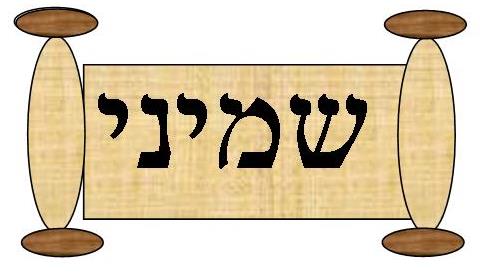After Aharon’s two sons died the normal sacrifices were brought. The Kohanim were instructed to eat parts of these sacrifices and Moshe asked Aharon why he had not eaten them. Aharon replied that he was an Onen (in mourning for his sons) and the law prohibits a person in this state to eat of sacrifices.
The Torah says: VAYISHMA MOSHE VAYITAV BE’ENAV, “Moshe heard and it was pleasing in his eyes.” (Lev. 10,20) Is it not strange that Moshe did not know the law and had to hear it from Aharon? Did not Moshe receive all the laws and teach it to Aharon? Rashi explains that Moshe was not embarrassed to admit that he had not heard this law. The Sifte Chachamim explains that he was not embarrassed to say he heard it but forgot it. Rabbi Menachem Saab comments: “Moshe who always taught others learned from Aharon and was not uncomfortable this time to learn from others. This is a great principle we must remember and attempt to imitate. We must be willing and ready to learn from others. If Moshe was not hesitant to learn, we certainly should not be ashamed to learn. This is what Chazal meant when they said, “Who is wise, he who learns from all men.” Avot 4;1
“Aharon raised his hands toward the people and blessed them.” (9:22)
One of the most awe-inspiring experiences is the Birkat HaKohanim, when a thousand-or-so kohanim bless the many thousands at the Western Wall in Jerusalem on the second day of Chol HaMo’ed Pesach and Succot. Most of the time, prayer at the Wall is a segmented affair. This group starts as this one finishes, while yet another group is somewhere in the middle.
The haunting chant of the Kohanic blessing evokes deep and powerful feelings in the heart of every Jew however religious he may be. It is a chant that echoes down the years. It is a living witness to the unbroken chain of Jewish tradition that links us to Sinai. The first appearance of that chant is in this week’s Torah portion. Aharon completed his first day of service in the Sanctuary and he then blessed the people with great joy. Such was his desire to bless the people that G-d rewarded him and his descendents that they should bless the Jewish People thus throughout the generations. The word for blessing in Hebrew, beracha, is connected to bereicha, which means a “pool.” Blessing is an overflowing pool that enriches and fills our lives. In the time of the HolyTemple, when the kohanim would bless the people, they would raise their hands over their heads and make a space between the third and fourth fingers of hands. When they recited the blessing using the ineffable Name of G-d, the Shechina, the Divine Presence, would rest on their hands. The kohanim to this day still cover their heads and hands with their prayer shawls when they recite the blessing. But maybe we could also understand a different symbolism behind the covering of the hands of the kohen. Our Sages teach us that blessing only descends on things that are hidden from the eye, that which the eye doesn’t see. For example, a farmer who starts to weigh his grain may pray that his crop will be large, but if he has already weighed it, he may no longer make such a request, for the size of the crop is already revealed to the eye. When the kohanim cover their hands they symbolize this idea that blessing descends only on that which is hidden from the eye.
Prepared by Devorah Abenhaim







